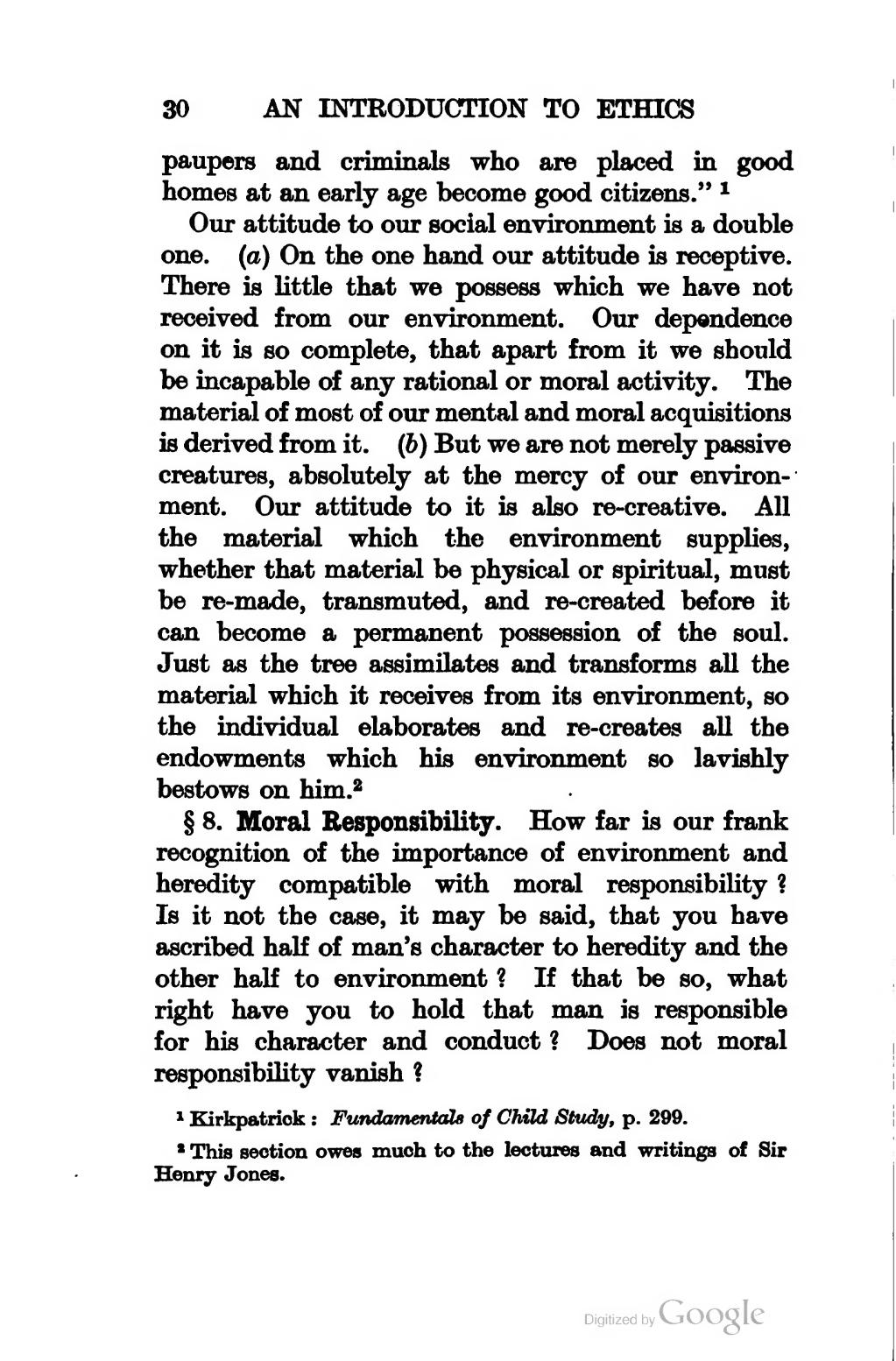paupers and criminals who are placed in good homes at an early age become good citizens."[1]
Our attitude to our social environment is a double one. (a) On the one hand our attitude is receptive. There is little that we possess which we have not received from our environment. Our dependence on it is so complete, that apart from it we should be incapable of any rational or moral activity. The material of most of our mental and moral acquisitions is derived from it. (b) But we are not merely passive creatures, absolutely at the mercy of our environment. Our attitude to it is also re-creative. All the material which the environment supplies, whether that material be physical or spiritual, must be re-made, transmuted, and re-created before it can become a permanent possession of the soul. Just as the tree assimilates and transforms all the material which it receives from its environment, so the individual elaborates and re-creates all the endowments which his environment so lavishly bestows on him. [2]
§ 8. Moral Responsibility. How far is our frank recognition of the importance of environment and heredity compatible with moral responsibility? Is it not the case, it may be said, that you have ascribed half of man's character to heredity and the other half to environment? If that be so, what right have you to hold that man is responsible for his character and conduct? Does not moral responsibility vanish?
- ↑ Kirkpatrick: Fundamentals of Child Study, p. 299.
- ↑ This section owes much to the lectures and writings of Sir Henry Jones.
